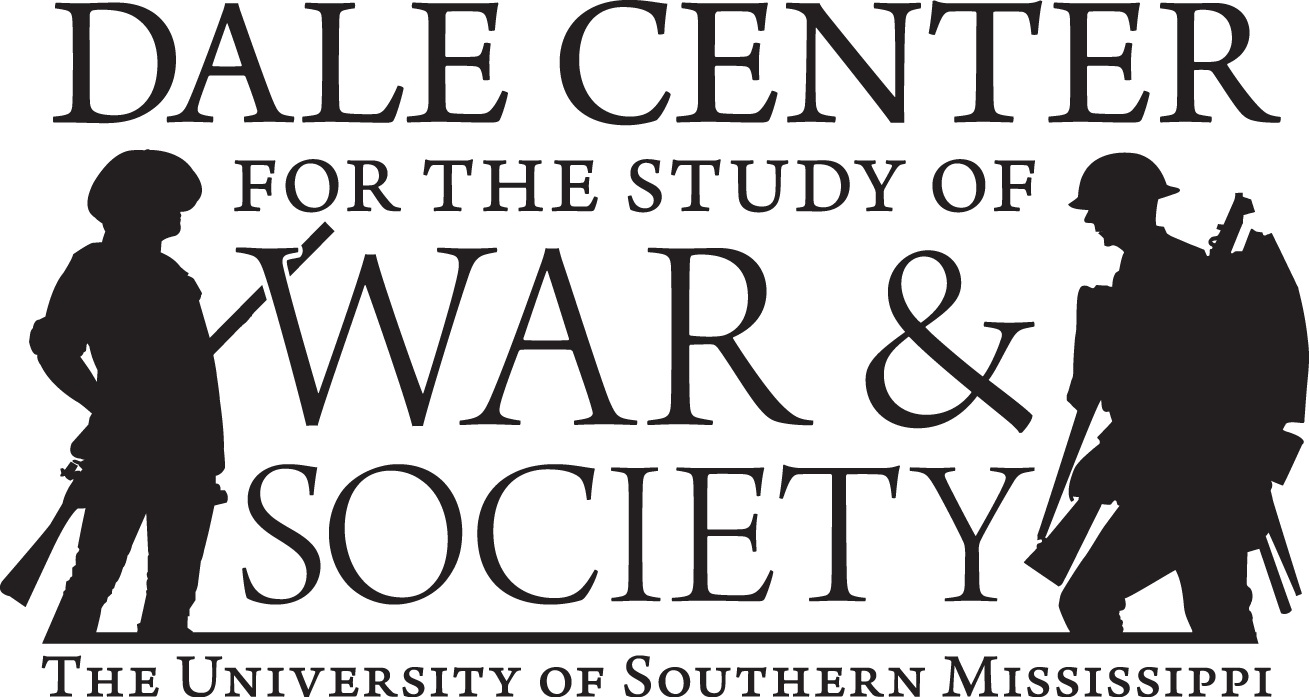Dale Center for the Study of War and Society
Colonel W. Wayde Benson (USMC Ret.) Fellowships
Page Content
Col. W. Wayde Benson was a career U.S. Marine Corps officer who held command and staff assignments that culminated in his position as Deputy Commander of a Marine Expeditionary Combat Brigade. Col. Benson is a graduate of Southern Miss and has served on the USM Foundation Board.
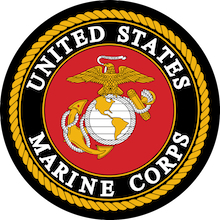
Colonel W. Wayde Benson Fellows
2020-2021:
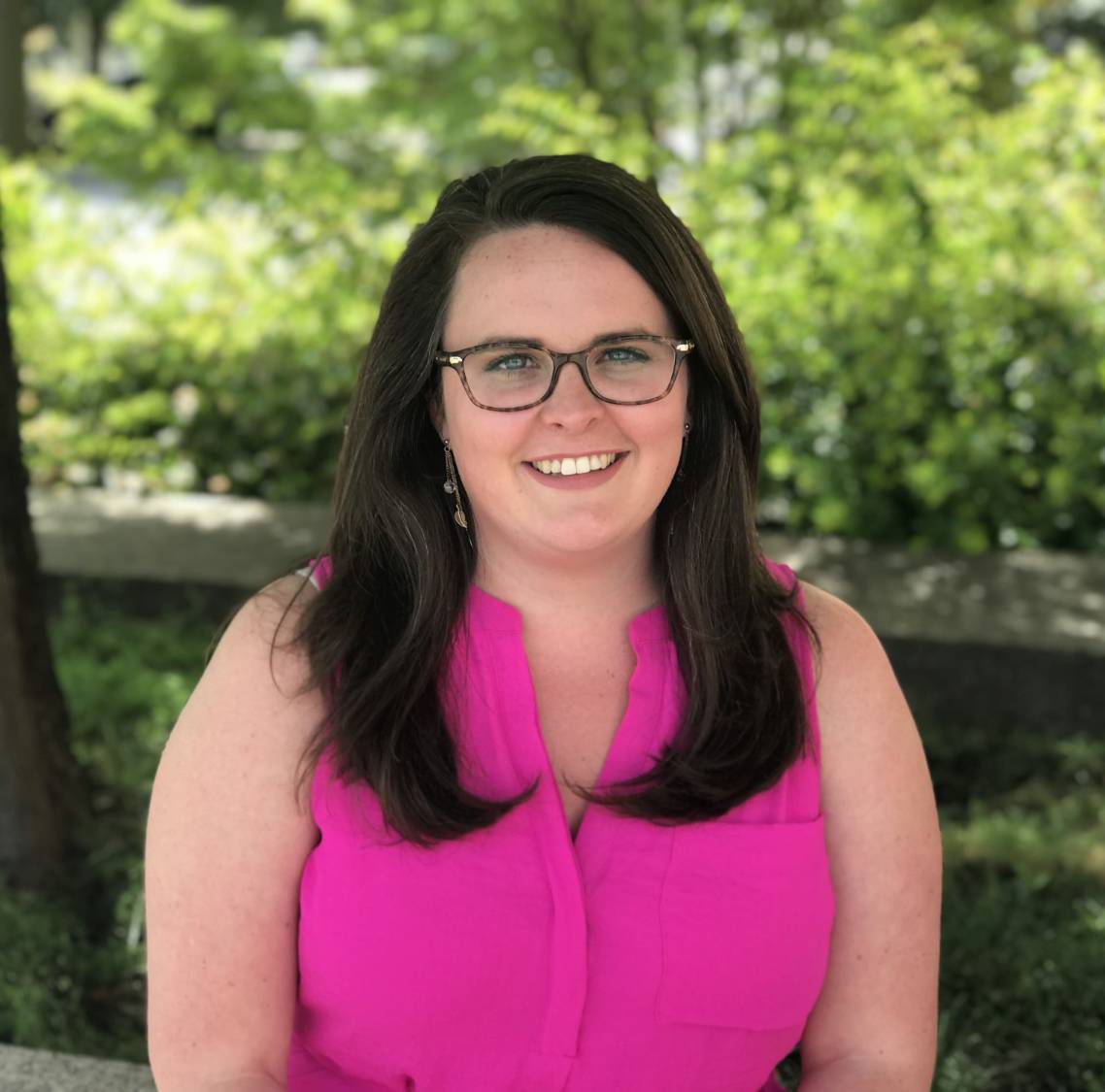 Hayley Hasik, PhD candidate, Modern U.S. History, University of Southern Mississippi; MA, Public
History, Stephen F. Austin State University, 2017; BS, History and English with a
minor in Astronomy, Texas A&M University-Commerce, 2014. Faculty Adviser: Dr. Heather
M. Stur
Hayley Hasik, PhD candidate, Modern U.S. History, University of Southern Mississippi; MA, Public
History, Stephen F. Austin State University, 2017; BS, History and English with a
minor in Astronomy, Texas A&M University-Commerce, 2014. Faculty Adviser: Dr. Heather
M. Stur
Hayley Hasik is a PhD candidate whose interests include 20th century U.S. history with an emphasis on war and memory, the Vietnam War, veterans' experiences, and cultural history. Hayley’s current research focuses on examining the legacy of the “Helicopter War” in Vietnam. The iconography of helicopters as the sight and sound of the Vietnam War developed during the war as corporations like Bell, Hughes Helicopter, and Sikorsky ran advertisements Army Aviation and United States Army Aviation Digest, which shaped the imagery of military helicopters. This project will unravel this symbolism, exploring how the military-industrial complex participated in image-making and contributed to the helicopter’s wartime culture and cultural legacy from the early Cold War through the Vietnam War. Hayley used the Benson Fellowship to pay for digital subscriptions to Vertiflite and Aviation Week & Space Technology. The Fellowship also funded research in the Bell Helicopter Records at the University of North Texas.
2018-2019:
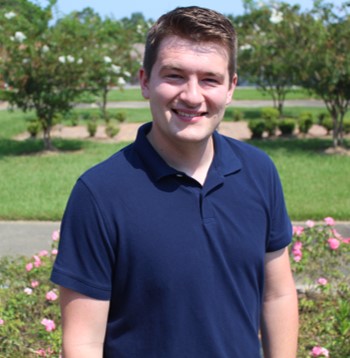 Taylor Lewis, MA Student, War and Society, University of Southern Mississippi; BA, History, Grand
Valley State University, 2015. Faculty Adviser: Dr. Andrew Wiest
Taylor Lewis, MA Student, War and Society, University of Southern Mississippi; BA, History, Grand
Valley State University, 2015. Faculty Adviser: Dr. Andrew Wiest
Taylor Lewis is an MA student in War and Society. His is primarily interested in the American conflicts in the Middle East and is currently researching Marine counterinsurgency operations in Helmand Province, Afghanistan. The Benson Fellowship allowed him to conduct research at Marine Corps University in Quantico, Virginia. The fellowship also allowed Taylor to complete a summer internship with the Marine Corps History Division, where he aided in research for the Marine Corps’ official history of Operation Iraqi Freedom. Working at the USMC History Division at Quantico allowed him to access invaluable resources such as command chronologies and oral history interviews conducted in the field. The materials he acquired at Quantico allow him to shine light on Marine Counter Insurgency (COIN) efforts from civilian interactions to combat strategy. To see a new story on Taylor's internship, click here.
2016-2017:
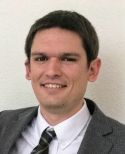 Lucas Somers, PhD student, U.S. History, University of Southern Mississippi; MA, History, Western
Kentucky University, 2015; BA, History, Western Kentucky University, 2013. Faculty
Adviser: Dr. Susannah J. Ural
Lucas Somers, PhD student, U.S. History, University of Southern Mississippi; MA, History, Western
Kentucky University, 2015; BA, History, Western Kentucky University, 2013. Faculty
Adviser: Dr. Susannah J. Ural
Lucas Somers is a first year PhD student interested in the Civil War Era and War and Society. His previous graduate research focused on scrutinizing significant aspects of Abraham Lincoln’s personal worldview by analyzing the president’s reported dreams, visions, and ‘night terrors.’ This project also attempted to revitalize some often-doubted sources of facts on Lincoln’s life, and Lucas hopes to continue exploring these and other potentially valuable resources relating to the Sixteenth President for his dissertation. The Benson Fellowship will allow him to broaden his research and continue making historical contributions in Lincoln Studies and the Civil War Era.
2015-2016:
 Tracy L. Barnett, MA student, U.S. History, University of Southern Mississippi; BA, History, Millersville
University of Pennsylvania, 2014. Faculty Advisor: Dr. Susannah J. Ural.
Tracy L. Barnett, MA student, U.S. History, University of Southern Mississippi; BA, History, Millersville
University of Pennsylvania, 2014. Faculty Advisor: Dr. Susannah J. Ural.
Tracy’s thesis, “Maligned “Milish:” Mississippi Militiamen in the Civil War” argues Mississippi militiamen developed a unique conception of military service based on their pre-war position within southern society. The Mississippi government, which oversaw the state’s militia defense system, proved unable to reconcile official policy with men’s localized perception of service. Instead, the Mississippi government created a centrally organized military system that undermined the militia’s efficiency. She is the recipient of the Dale Center Graduate Fellowship 2016-2017, Lamar Powell History Graduate Scholarship 2015-2016, Colonel W. Wayde Benson Fellowship 2015-2016, Phi Alpha Theta’s Thomas S. Morgan Memorial Scholarship 2015-2016. The Benson Fellowship’s generous funding will be used to support her thesis research at various archives in Mississippi, Pennsylvania, and Washington D.C.
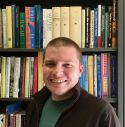 Tyler A. Rotter, PhD candidate, Early American History, University of Southern Mississippi; MA, History,
Southern Illinois University-Edwardsville, 2010; BA, History, University of Missouri-Columbia,
2007. Faculty Advisor: Dr. Kyle F. Zelner
Tyler A. Rotter, PhD candidate, Early American History, University of Southern Mississippi; MA, History,
Southern Illinois University-Edwardsville, 2010; BA, History, University of Missouri-Columbia,
2007. Faculty Advisor: Dr. Kyle F. Zelner
"Thanks to the generous support provided by the Dale Center’s Benson Fellowship, I am able to continue my doctoral research examining the promotion, application, and evolution of religious culture in colonial New England between the outbreak of the Pequot War (1637) and the end of King George’s War (1748). During the summer of 2015, the Benson Fellowship partially funded my research trip to the Connecticut Historical Society in Hartford, Connecticut. This trip produced a wealth from both clerical leaders and governmental and military officials. The Benson Fellowship will also allow me to complete research trips to the Massachusetts Historical Society, Harvard’s Houghton Library, and the Rhode Island Historical Society. Because of the centrality of the Massachusetts Bay Colony to early New England, Rhode Island’s atypical character in comparison to its neighbors, and Harvard’s position as a bastion for religious promotion and education makes each of these institution’s collections essential for the successfully completion of my research. Through the use of these materials, I will examine how religious rhetoric was used publically and privately during war. I will also study how this rhetoric changed over time, especially as the various Indian wars of the seventeenth century were replaced by the imperial wars with France and Spain during the eighteenth century. I am extremely grateful for the support of the Dale Center’s Benson Fellowship and am sure that it will allow me to enhance my work."
2014-2015:
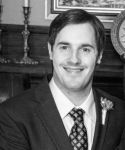 Jonathan Harton, PhD student, U.S. History, University of Southern Mississippi; MA, Military History,
University of North Georgia, 2012; BA, History, University of Georgia, 2009. Faculty
Advisor: Dr. Kyle F. Zelner
Jonathan Harton, PhD student, U.S. History, University of Southern Mississippi; MA, Military History,
University of North Georgia, 2012; BA, History, University of Georgia, 2009. Faculty
Advisor: Dr. Kyle F. Zelner
Jonathan Harton is a first year PhD student interested in the various ways local communities respond to and remember armed conflict, particularly in early North America. His current research focus seeks to examine the martial culture of southeastern militias during the mid to late 18th century. He intends to use the Benson Fellowship to support archival research at the Moravian Archives in Winston-Salem concerning the wartime relationship between revolutionary Whig militias and Moravian settlers.
2013-2014:
 Allan Branstiter, PhD candidate, U.S. History, University of Southern Mississippi; MA, History, The
University of Southern Mississippi, 2013; BA, History, Minnesota State University-Moorhead,
2011. Faculty Advisor: Dr. Susannah J. Ural
Allan Branstiter, PhD candidate, U.S. History, University of Southern Mississippi; MA, History, The
University of Southern Mississippi, 2013; BA, History, Minnesota State University-Moorhead,
2011. Faculty Advisor: Dr. Susannah J. Ural
"Through generous assistance provided by the Dale Center’s Benson Fellowship, I conducted several research trips exploring the Civil War and Reconstruction history of our state. During the fall semester of 2013, I made numerous trips to the Mississippi Department of Archives and History in Jackson. In 2014, I spent my spring break in northern Mississippi conducting research at the University of Mississippi archives and the Marshall County courthouse in Holly Springs. For my final trip, I drove north on a seemingly endless trek into the heart of New England Yankeedom, with brief sojourns in Baltimore, the Fredericksburg National Battlefield, and Northampton, Massachusetts. In Baltimore, I attended discussions by leading historians about the past, present, and future direction of Civil War era scholarship, while also taking every opportunity to network with my peers at other universities. Once in Northampton, I examined the Ames Family Papers at Smith College to gather documents pertaining to Adelbert Ames’s tenure as Mississippi’s Reconstruction governor and senator. His letters to Republican operatives throughout the state reflect the challenges of building a political party infrastructure from the top down. Ultimately, Republicans failed to reconcile their party-building efforts with the demands of Mississippi’s deeply fractured and fluid postwar political and social environment.
With the words of desperate Republican party-builders fresh in my mind and news of ISIS assaults on the reconstructed government of Iraq on the radio during my long drive home, I became more convinced that actions of individuals and the dynamics of local politics matter when struggling to win the peace. Thanks to the Benson Fellowship, I now have many of the historical sources I need to explore this theory further."
 Jason Engle, PhD candidate, Modern European History, University of Southern Mississippi; MA, Norwich
University, Military History, 2008. Faculty Advisor: Dr. Andrew Wiest
Jason Engle, PhD candidate, Modern European History, University of Southern Mississippi; MA, Norwich
University, Military History, 2008. Faculty Advisor: Dr. Andrew Wiest
"I used the funds from the Benson Fellowship to pay for my travel to Innsbruck (Austria) where I spent seven weeks at the Tiroler Landesarchiv and the Universität Innsbruck Hauptbibliothek researching the paramilitary Tiroler Heimatwehr organization (1918-1936). The remainder of the award was spent on document reproduction costs. The British National Archives houses captured records from the German Foreign Ministry in Austria during the early Interwar Period. The rest of the funds contributed to me being able to have two folders concerning the activities of the Heimwehr organizations (with particular concern over their close relations with conservative Bavarian paramilitary groups) reproduced. The Benson Fellowship contributed substantially toward the completion of a significant portion of the archival research for my dissertation on the continuity of civic militarism in the Alpine regions of Austria."
